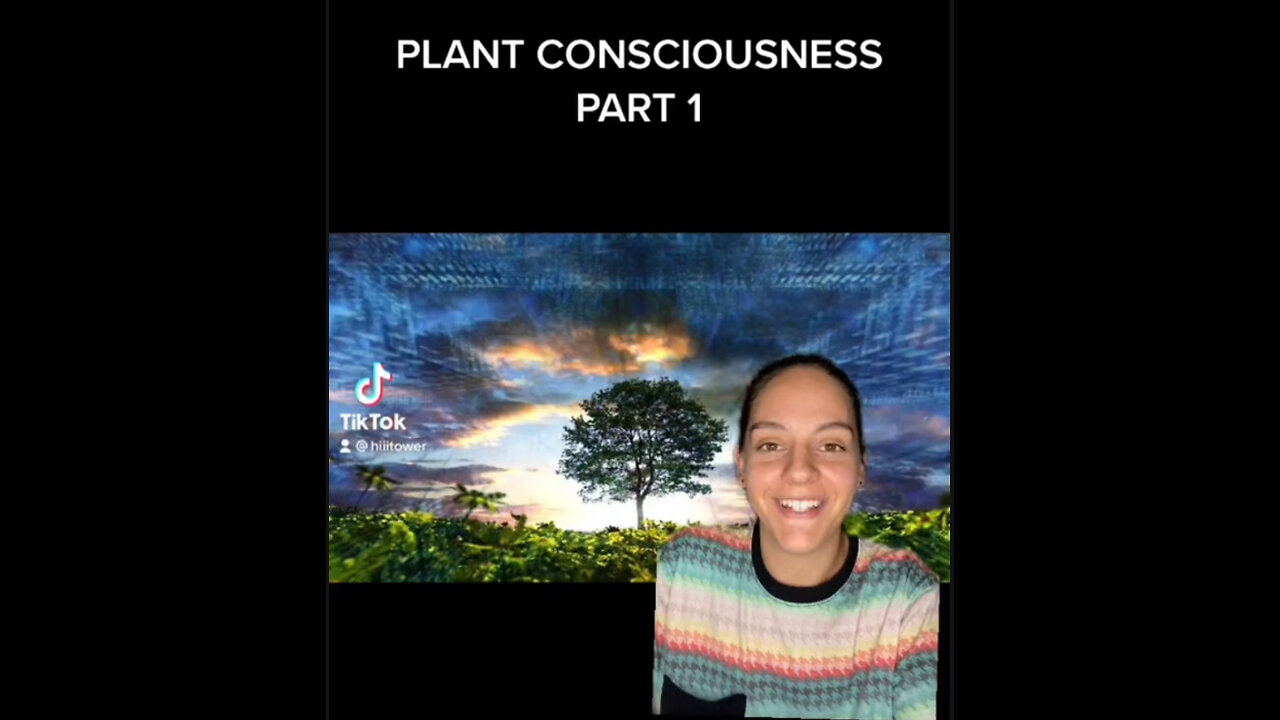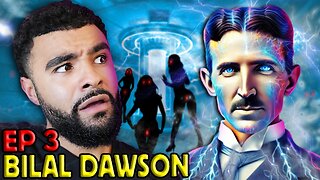Premium Only Content

The Backster Effect: Redefining Consciousness Across the Living Spectrum
In a transformative exploration that spans the realms of science and philosophy, the Backster Effect challenges our conventional understanding of consciousness. Originally discovered by Cleve Backster in the 1960s, this phenomenon suggests that plants, and potentially all living cells, share a form of universal perception that resonates deeply with human emotions and intentions. This article delves into the origins, experiments, and profound implications of this groundbreaking study, urging a reevaluation of the sentient boundaries we have long accepted.
#### **Origins of a Paradigm Shift**
The Backster Effect originated from a spontaneous experiment by Cleve Backster, an expert in polygraph technology. Intrigued by the biological processes of his office plant, Backster connected it to a lie detector machine. To his astonishment, the plant exhibited a dynamic response when threatened with harm—an emotional surge akin to that of a human. This serendipitous discovery propelled Backster into a lifelong quest to explore what he termed "primary perception" among non-animal entities.
#### **Exploring the Data: Beyond Anecdotal Evidence**
Backster's subsequent experiments broadened the scope of his initial findings. He observed similar responses in plant cells when exposed to threats or even mere thoughts of harm, suggesting a form of sensitivity that transcends traditional sensory mechanisms. Further experiments extended these observations to human leukocytes, where cells seemed to react to the emotional states of their donors, despite physical separation. These experiments posited a biocommunicative network that linked all life through a field of consciousness, challenging the materialistic framework that dominates biological sciences.
#### **Scientific Reception and Critical Review**
Despite its compelling narrative, the Backster Effect has met with significant skepticism from the scientific community. Critics point to the lack of conventional nervous systems in plants as a critical barrier to any form of consciousness. They suggest alternative explanations such as electrochemical responses to environmental stimuli, which do not imply conscious awareness. However, the consistency of Backster’s results, corroborated by similar findings in the emerging field of plant neurobiology, continues to fuel debate and inspire further research into the interconnectedness of life.
#### **Philosophical Implications and Ethical Considerations**
The philosophical ramifications of the Backster Effect are immense. If all life possesses a form of consciousness, the ethical landscape of our interactions with the natural world shifts dramatically. This perspective aligns with ecological and indigenous worldviews, which see nature as a dynamic, interconnected web of life, where every entity has intrinsic value and rights. This understanding calls for a more compassionate and sustainable approach to our environmental and dietary choices, recognizing plants and other non-animal life forms as active participants in the biosphere.
#### **Legacy and Forward Path**
Despite the controversies, Cleve Backster’s pioneering work has seeded a growing interest in understanding the deeper connections among all forms of life. His findings encourage a holistic approach to science, one that embraces the mysteries of consciousness and seeks to understand the fabric of life in more integrative and respectful ways. The continued exploration of plant sentience and inter-species communication not only broadens our scientific horizons but also enriches our philosophical and spiritual understanding of existence.
### **Conclusion: A Call for Expanded Consciousness**
The Backster Effect stands as a beacon for those advocating a broader, more inclusive view of consciousness that spans the spectrum of life. It challenges us to reconsider what it means to be alive and conscious in a world teeming with hidden connections and untapped potentials. As we advance our understanding of these phenomena, we may find that the universe is far more sentient and interconnected than our current paradigms allow us to see.
What are your reflections on the possibility of a universal consciousness shared across all forms of life? How might this shift our behavior towards the environment and each other?
-
 1:09:50
1:09:50
Donald Trump Jr.
9 hours agoHow Sean Parnell Helped Deliver PA, Plus Why Pete Hegseth Must Be Confirmed | TRIGGERED Ep.199
187K85 -
 1:58:03
1:58:03
Tucker Carlson
7 hours agoJeffrey Sachs: The Inevitable War With Iran, and Biden’s Attempts to Sabotage Trump
184K304 -
 1:31:00
1:31:00
Redacted News
10 hours agoBREAKING! Trump demands answers on UFOs over America as Pentagon hides the truth | Redacted News
192K333 -
 1:07:45
1:07:45
BIG NEM
7 hours agoSpiritual STDs, Nikola Tesla & Harnessing Creative Energy! ⚡💡
30.2K2 -
 38:09
38:09
Patriots With Grit
6 hours agoWe Must Finish This Fight | Glenn Baker
23.6K -
 54:52
54:52
LFA TV
1 day agoWhy Did God Bring Donald Trump Back to the White House? | Trumpet Daily 12.16.24 7PM EST
40.3K9 -
 1:33:00
1:33:00
2 MIKES LIVE
13 hours ago2 MIKES LIVE #156 Author Frank Lasee will Deep Dive into CLIMATE CHANGE!
26.2K1 -
 15:36
15:36
DeVory Darkins
1 day ago $32.10 earnedGLOVES OFF: Scott Jennings hits CNN Panel with knockout blow
94.1K95 -
 28:05
28:05
Scammer Payback
14 hours agoHacking the World's Largest Streamer
46.6K5 -
 2:16:05
2:16:05
Barry Cunningham
12 hours agoTRUMP DAILY BRIEFING: Can The Trump Train Be Stopped? So Much Winning!
48.3K23